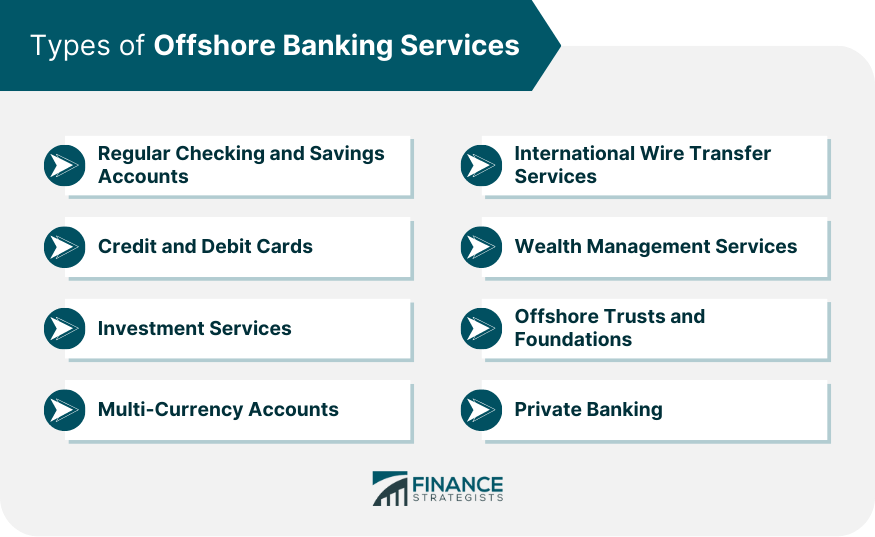Exploring the Providers Offered in Offshore Company Formations: What You Need to Know
Offshore firm formations provide an array of services developed to assist in business success while making certain compliance with legal requirements. These solutions can include firm registration, legal guidance, and setups for privacy through candidate supervisors. Furthermore, factors to consider around tax optimization and possession protection are crucial. Recognizing these elements can substantially affect one's decision-making process. Nevertheless, the complexities of picking the best territory and guiding with guidelines increase additionally questions. What should one take into consideration next?
Understanding Offshore Company Structures
What specifies an overseas firm structure? An offshore business is normally registered in an international territory, typically characterized by beneficial regulatory atmospheres and discretion. These frameworks are developed to provide legal splitting up between the company's possessions and its proprietors, enabling a variety of functional and financial benefits. Offshore companies can be established as different types, including limited liability companies (LLCs), firms, or trusts, depending on the regulative framework of the chosen jurisdiction.
Key features of these structures include improved personal privacy, asset defense, and simplicity of worldwide organization deals. Furthermore, they frequently require very little local visibility and can promote the administration of investments across borders. The selection of a specific overseas territory can considerably influence the operational abilities and compliance requirements of the firm. Generally, comprehending the details of overseas business structures is essential for financiers and business owners seeking to optimize their business methods.
Tax Advantages of Offshore Firms
Offshore companies use significant tax obligation benefits that can enhance profitability and financial effectiveness for business proprietors. One of the key benefits is the possibility for minimized business tax obligation rates, which can be significantly reduced than those in the proprietor's home nation. Numerous overseas jurisdictions provide tax obligation incentives, such as tax vacations or exemptions on particular sorts of income. In addition, offshore companies might benefit from beneficial tax treaties, permitting the reduction or elimination of withholding taxes on returns, nobilities, and rate of interest. This can cause increased money flow and better reinvestment opportunities. Furthermore, some offshore entities can run under a territorial tax obligation system, which only taxes income produced within that jurisdiction. This structure can be particularly useful for services involved in international trade or online solutions, allowing them to optimize their tax commitments while maintaining conformity with international regulations. In general, these tax advantages can greatly add to long-term monetary success.
Personal Privacy and Confidentiality Functions
How can company owner safeguard their sensitive details while profiting from international opportunities? Offshore business formations supply robust personal privacy and discretion features that appeal to business owners looking for discernment (Offshore Company Formations). Numerous jurisdictions give candidate services, allowing people to select 3rd parties as directors or investors, therefore concealing their identities from public records
In enhancement, rigorous data security regulations in numerous offshore territories guarantee that sensitive information stays private. Offshore business typically gain from improved banking privacy, with guidelines that protect customer identities and financial purchases.
Moreover, using personal addresses for signed up workplaces decreases exposure to public analysis.
These personal privacy steps allow company proprietors to operate with better confidence, understanding their delicate information is safe. By leveraging these attributes, business owners can concentrate on tactical growth chances without the constant problem of info exposure.
Possession Defense Strategies
While steering with the intricacies of international business, business owners need to focus on asset defense to guard their riches from possible risks. Offshore firm formations use robust methods for minimizing exposure to legal cases, lender activities, and political instability. One effective approach entails developing a minimal obligation company (LLC), which divides personal possessions from organization obligations, consequently giving a shield against lawsuits.
Additionally, entrepreneurs can use trusts to hold properties, ensuring they stay protected from financial institutions and legal conflicts. Territories with strong asset protection regulations, such as Nevis or the Chef Islands, are often favored for their positive regulations. Applying appropriate insurance coverage and expanding financial investments better enhances safety and security, minimizing vulnerability to market variations. Generally, utilizing these strategies within an offshore structure not only advertises riches conservation however likewise promotes long-term monetary stability, allowing business owners to concentrate on development and innovation without excessive concern over possession exposure.

Opening Up Offshore Bank Accounts
Opening up overseas bank accounts entails comprehending the various account types available, which can deal with various monetary needs. Additionally, the documentation procedure click reference is vital, as it commonly requires specific types of recognition and evidence of residence. This summary will certainly make clear the options and needs for individuals and companies looking for to develop overseas financial connections.
Account Types Provided
Offshore checking account can be found in various types, each created to deal with various economic demands and objectives. Personal accounts are customized for people looking for personal privacy and property protection, while company accounts assist in business purchases and management of firm funds. Multi-currency accounts are preferred amongst worldwide financiers, allowing for transactions throughout different currencies without too much conversion costs. In addition, interest-bearing accounts provide interest on down payments, attracting those seeking to grow their possessions securely. Some banks likewise provide financial investment accounts, providing clients access to different investment chances. Each account type might come with distinctive benefits and attributes, allowing customers to choose the one that lines up ideal with their monetary techniques and purposes. Understanding these options is essential for reliable overseas financial.
Required Paperwork Refine
To successfully open an offshore savings account, prospective clients must prepare a collection of certain papers that please regulatory needs. This typically includes a legitimate ticket or government-issued identification to confirm identity. Clients are likewise needed to provide evidence of home, such as an energy bill or financial institution statement, dated within the last three months. Furthermore, a comprehensive summary of the source of funds is essential to guarantee compliance with anti-money laundering guidelines. Some banks might request an organization plan or reference letters, especially for corporate accounts. Each territory might have unique demands; subsequently, speaking with an expert in overseas solutions is recommended to determine all paperwork is accurate and full, promoting a smoother account opening process.
Compliance and Regulatory Considerations
Maneuvering the intricacies of compliance and regulatory considerations is important for any entity going after overseas company formations. Entities should adhere to various global and regional legislations that govern financial tasks, taxation, and corporate governance. Secret policies often consist of anti-money laundering (AML) legislations, know your customer (KYC) protocols, and reporting requirements to assure transparency.
Moreover, business have to remain alert concerning adjustments in legislation that may affect their operational standing. Failure to abide can cause extreme charges, including penalties or the dissolution of the firm. Involving with monetary and lawful professionals that specialize in offshore regulations can supply important advice in guiding with these intricacies.
Additionally, understanding the implications of tax treaties and international agreements is essential for preserving compliance. Companies must focus on developing robust compliance structures to alleviate threats and ensure long-term sustainability in their overseas ventures.
Picking the Right Offshore Jurisdiction
Just how does one determine the most ideal offshore jurisdiction for firm formation? The selection of territory is vital and involves numerous elements. One must evaluate the lawful framework and laws controling firms in possible jurisdictions. Positive Learn More tax obligation programs, such as reduced or zero corporate tax obligations, are usually a key factor to consider. Additionally, the political security and track record of the territory play substantial functions in guaranteeing the defense of assets and conformity with international criteria.
The accessibility of financial services and the ease of doing service should not you can look here be neglected. A territory offering robust discretion arrangements can additionally be useful for those looking for privacy. Lastly, examining the costs connected with business development, maintenance, and prospective lawful fees is important. By evaluating these aspects, one can make an educated decision, guaranteeing that the chosen offshore jurisdiction straightens with their organization objectives and functional requirements.

Regularly Asked Inquiries
How much time Does the Offshore Firm Development Refine Normally Take?

The offshore business formation process typically takes anywhere from a few days to numerous weeks. Offshore Company Formations. Elements influencing this timeline consist of territory, paperwork efficiency, and details company associated with the formation process
What Are the First Prices Associated With Setting up an Offshore Firm?
The first prices for establishing an overseas firm can vary extensively, normally incorporating enrollment charges, lawful expenditures, and added fees for services like checking account setup and compliance, often completing a number of hundred to numerous thousand bucks.
Can People Form Offshore Companies Without Specialist Help?
Individuals can practically form offshore firms individually; nonetheless, they typically come across intricate lawful and governing requirements. Offshore Company Formations. Expert aid is suggested to navigate these obstacles successfully and guarantee conformity with pertinent regulations and regulations
What Papers Are Needed for Offshore Firm Registration?
The records required for overseas company enrollment typically consist of recognition proof, a detailed company strategy, evidence of address, and, in some territories, a declaration of beneficial possession and resolutions from directors.
Are There Ongoing Upkeep Costs for Offshore Firms?
Ongoing upkeep costs for overseas companies are usually required to ensure compliance with local policies. These costs may include yearly renewal charges, registered agent services, and bookkeeping, differing by jurisdiction and specific firm framework.
